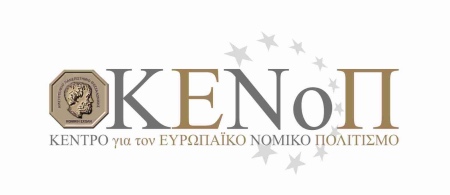Τhe Centre for European Legal Culture (CELC) was established, in 2018, by the Senate of the Aristotle University of Thessaloniki (AUTh), Greece, as an autonomous unit of the University supervised by the Senate itself.
The Centre forms an organic part of the Law School of the Aristotle University. It is governed by a seven-member Board of Directors and is assisted in its scientific and other activities by a seven-member, interdisciplinary, Scientific Council, as well as by an Academic Board comprising distinguished scholars from Greece and other European countries.
The Centre serves as a leading forum for debate on EU affairs, organizing events on a multitude of European issues.
OUR PHILOSOPHY
The Centre was founded on the belief that one of the most important factors working against European integration is the fact that the citizens of EU member states often feel as if they have no say on the establishment of the EU legal provisions and rules. They also feel excluded from the joint exercise of policies which derive directly from those rules. Occasionally, citizens may end up thinking that the process of establishing EU rules is not even in the hands of their own national governments, and, consequently, lacks the minimal democratic legitimization required. The perception, though largely erroneous, has led, through its subtle exploitation by a variety of political forces, to large sections of the population not only espousing different forms of Euroscepticism but also resorting to individual or collective actions that are hostile to and openly threaten European integration.
In order to reverse this negative development, a multipronged effort is required that will highlight the common values of the peoples of Europe and their common perspective in a European present and future which its citizens can actually co-define through their participationin the definition of European legal rules and the policies pursued through them.
The main objective of the CELC is to conduct international research of an interdisciplinary and diachronic nature on a range of issues relating to the common European legal culture, with the final aim being to promote the common values shared by the peoples of Europe. The Centre’s statutory aims therefore include the following:
- The conduct of empirical research relating, among other things, to current trends in both Greek and European public opinion;
- The preparation of comparative legal studies, on issues for which the undertaking of legislative initiatives by the European Union is required;
- The coordination of information events;
- The organization of educational and training programmes;
- The provision of expertise to civil society institutions which seek to exercise their rights to a “European Citizens Initiative”;
- The provision of expertise to academic institutions and/or civil society institutions seeking to establish mechanisms to protect Union rights (“Human Rights Clinics”);
- The taking of initiatives regarding the establishment of “A European Network of Law Schools for the European legal culture” etc.
